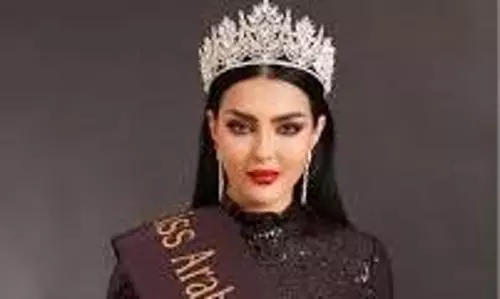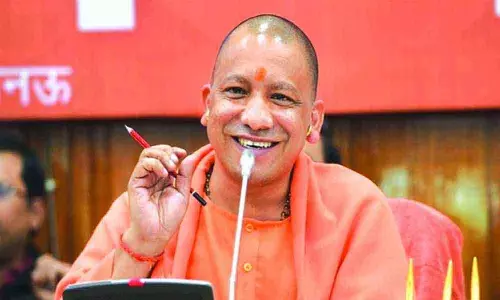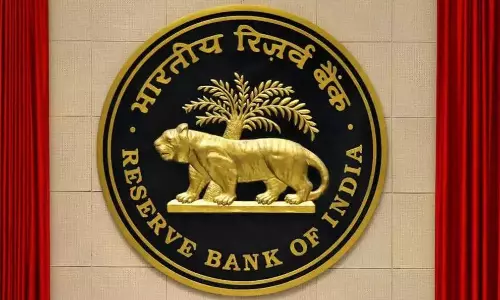
The change of head in Iraq
text_fieldsIraq'
Iraq's president Barham Salih has appointed former Najaf governor Adnan Al-Zurfi to the post of prime minister. The President's move is his second attempt to resolve the government crisis since the resignation of Adil Abdul-Mahdi in November last year. And ever since that rsignation, Abdul-Mahdi himself has been continuing as caretaker prime minister, because Mohammed Tawfiq Allawi, who was appointed to the post, failed to win the support of Iraq's parliament, the Council of Representatives. Once the new nominee prepares a list of cabinet members and wins the aproval of the house of representatives, that will set the stage for the new cabinet to take office. Al-Zurfi has been granted a month's time to accomplish this, as provided in the constitution. But in the midst of the global crisis around Covid-19, whether this change of government will materialize and if it does, for how long are all things being watched by observers.
Adnan Al-Zurfi, who stormed into the political firmament of Iraq as a youth leader of Dawa Party, which raised the flag of rebellion against Saddan Hussain's autocracy, is known as a popular leader of the Shia stronghold of Najaf. After fleeing the country in 1991 following the popular revolt in southern Iraq, Al-Zurfi became a refugee first in Saudi Arabia and later in America. After obtaining US citizenship, Al-Zurfi returned to homeland during the US occupation in 2003, but that was in a new incarnation. If he had started his politics with Shia backing against Saddam, his second coming after exile was as an anti-Iran darling of Iraq. But continuing as a favourite of the Nasr sect of Shihas, he became the governor of Najaf for three terms.
Although Al-Zurfi won unstinted support of the US that controlled both the occupation and the post-occupation government of Iraq, the latter days saw his popular support sinking. The problem in Najaf was also corruption, which had brought down the central government of Iraq. That culminated in the impeachment of the governor by the provincial assembly. Even after that, he was able to enjoy the support as a US-dependent ruler, and also the backing of the people Najaf thanks to the defence against the influence that Iran was trying to secure among the Shia community. All this helped him get elected to the people's house of Najaf in the 2018 general election. In ultimate weighing of merits, what helped him rise to the top post of the country is his being one whom America and the West needed, factors that also raise concerns about his rise and survival.
None of the stake-holders in Iraq striving to wipe off the remnants of occupation from the country, is unlikely to back Al-Zurfi, causing apprehension whether he will also have to back out like his predecessor Allawi. After Allawi's withdrawal, although the President had appealed to all political parties to nominate a unanimous candidate, no one took the initiative for that. Then under the cover of nomination by a few Shia groups, the President just declared the appointment of Al-Zurfi - as the most likely person to obey his dictates. The Fatah Bloc, with a strength of 48 in the 329-member assembly and the 8-member strong Ataa Bloc led by Falih Alfayyadh are, for the very reason of being pro-Iran, against Al-Zurfi. However, the general understanding is that he will be able to get through with the required majority of 165 in the parliament.
However, even if the new government takes office with US support, it remains to be seen what all the new regime can do. The case of Iraq is, like Afghanistan, of a US occupation in which the US poked its nose and got trapped - the major headache being none other than the continuing attacks by the armed goups backed by Iran. And the militias have not deviated from the norm of response through rocket attacks against any attempt to hoist pliant governments, even after Al-Zurfi's nomination. America is bound to do three things: protect its forces, ensure that the proxy government does not fall in political uncertainty and third, safely accomplish its declared troop pullout.
The continuing attacks on the military camps of America and its allies, have been causing no small trouble to the occupying forces. And going by past experience, the native governments can do very little in this. And the nosediving oil price has sharpened the economic crisis of the country. Also troublesome are the challenges in healthcare caused by an unending war, capped most recently by the Covid infection. In this acute crisis, even the US is unsure about the prospects of any game it can play with a government of its liking. Thus a mere change of figure-head will not free America of its headache. Only a solution package of quitting occupation entirely and handing over power to the natives, can put an end to the misery of Iraq and the tragedy of the US.























